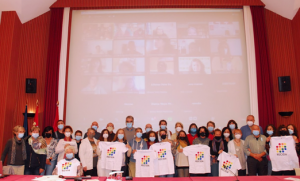IFLA’s Regional Advocacy Priorities Study collected responses from library associations, institutions, and individuals in June and July of 2021 in order to build up an understanding of the status of library advocacy in the world today.
Its goal is to get library and information professionals around the world (and in particular in IFLA’s new Regional Council and Division Committees) thinking critically about library advocacy.
As set out in the first part of this blog last week, reflection is important. Our time and energy is far from infinite, and so we need to keep on asking ourselves how to use it most effectively. Priorities change, so too do circumstances.
The same reflection is necessary around the way in which we advocate.
As such, the Study included a question about the degree to which libraries in different countries carry out different types of activity as part of their advocacy efforts. You can read the full answers on p56 onwards of the Report.
The question draws on IFLA’s Advocacy Capacities Grid, which aims to break down the different elements of advocacy. It is a tool, allowing libraries to think about where they are already strong, and where they may be able to do more.
It recognises, in particular, that advocacy involves a range of steps, reaching from what can be seen as lobbying (working with politicians, around specific legal changes) to broader public relations.
A first set of activities relate to engagement with laws and lawmakers – practices which are more at the ‘lobbying’ end of the spectrum of advocacy:
- Understanding laws and policies: this refers to the ability of libraries to understand the content of laws and policies, and follow the process by which they are developed and approved. This matters, if libraries are to be able to spot issues and seize opportunities on a timely basis to obtain better laws and policies (or avoid bad ones)
- Contacts with government officials: this refers to whether libraries have a strong network of contacts with ministers and civil servants who prepare and take decisions which can shape the situation facing libraries.
- Meet regularly with government officials: this refers to the particular importance of being able to talk regularly with policy-makers and shapers. Such meetings are both an opportunity to share views and build common understanding, as well as being important in order to respond to emerging issues.
- Contacts with legislators: in addition to work with the executive, it can also be powerful to work with members of parliament. They are important not only when voting on law, but can also help hold governments to account when they are not doing enough for libraries, or even propose laws that could help libraries in their work.
A second set focuses on who carries out advocacy work:
- Staff focused on advocacy: this refers to whether there is a named individual or individual who is responsible for carrying out advocacy on behalf of libraries. Allocating responsibility can help with coordination of work, as well as allow for the development of relationships and knolwedge.
- Members as advocates: this refers to whether individuals across the library field are mobilised to advocate for libraries. This can help ensure that libraries can engage effectively at the local level, as well as making the voice of libraries stronger.
A third set looks at communications:
- Attractive communication tools: this refers to the ability of libraries to create communication tools which are professional and appealing. This is important if libraries are to be able to seize people’s attention.
- Impact communication: this refers to the ability to present evidence of the impact of libraries, for example through collecting powerful stories of how libraries contribute to development, or to share data. This can help convince people of the need to support libraries.
A fourth set looks at working with and through others to deliver on advocacy goals:
- Contacts with journalists: this refers to whether libraries have relationships with the press and other commentators or influencers. This can allow library messages to be heard by a wider audience, potentially in a way that is more effective than if libraries communicate themselves!
- Partnerships: this refers to relationships with other organisations and stakeholders who can support library advocacy, such as non-governmental organisations. They can open up possibilities to build new contacts, and convince new audiences.
Finally, there is evaluation:
- Advocacy impact evaluation: this refers to the capacity to assess the impact of advocacy efforts in order to inform future work. It is an important step in order to ensure continuous improvement in the effectiveness and reach of your work.
As set out in the previous blog, the study is limited by the number of respondents. It should therefore not be taken as a definitive snapshot of advocacy around the world, but rather a conversation starter.
To help with this, the study breaks down responses by region, by type of respondent (association, institution, individual), and by size (of association and institution), allowing us to highlight interesting trends in library advocacy practices around the world.
Looking at the answers to the question around advocacy activities, we can therefore identify the following potential findings, as a basis for further discussion.
Libraries focus more understanding laws, than engaging with lawmakers: a consistent finding across regions was a tendency to more active in work to keep track of laws, and understand what they mean, than to engage with decision-makers (and in particular, members of parliament).
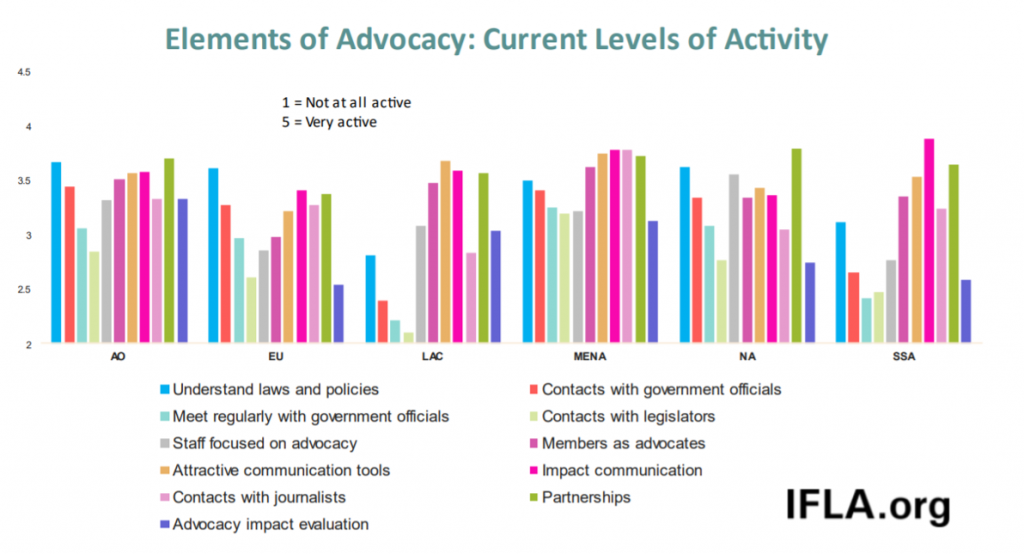
Chart 1: Level of activity on different elements of advocacy – results for all respondents (by region)
Clearly, understanding laws is important, in order both to be able to follow them, and to understand and set out how they can be improved. Yet relations with decision-makers matter, given that in the end, they are the ones determining whether libraries will get the policies and provisions they need.
It is particularly interesting that legislators receive least attention. It is true that a single member of parliament is likely to have less power than a minister, but they can be powerful advocates, and may be freer in making proposals than those in government already.
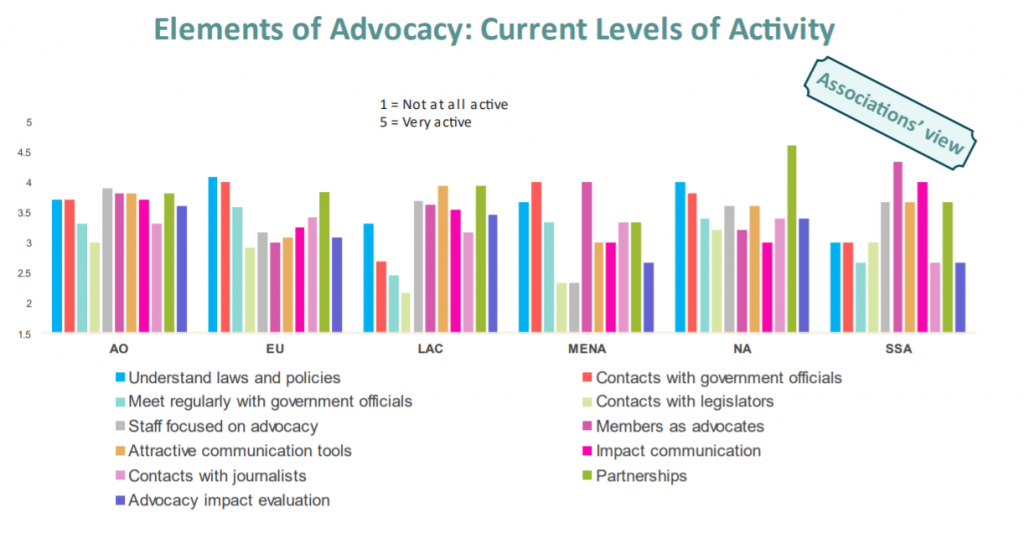
Chart 2: Level of activity on different elements of advocacy – association respondents only (by region)
Looking in particular at associations, it is also notable that the place of this engagement varies by region.
In Europe, North America and the Middle East and North Africa, understanding laws and maintaining contacts with decision-makers stand out as areas of focus. Meanwhile, for associations in Asia-Oceania, these activities stand out less, while in Latin America and the Caribbean, and Sub-Saharan Africa, they play a relatively smaller role than other types of activity.
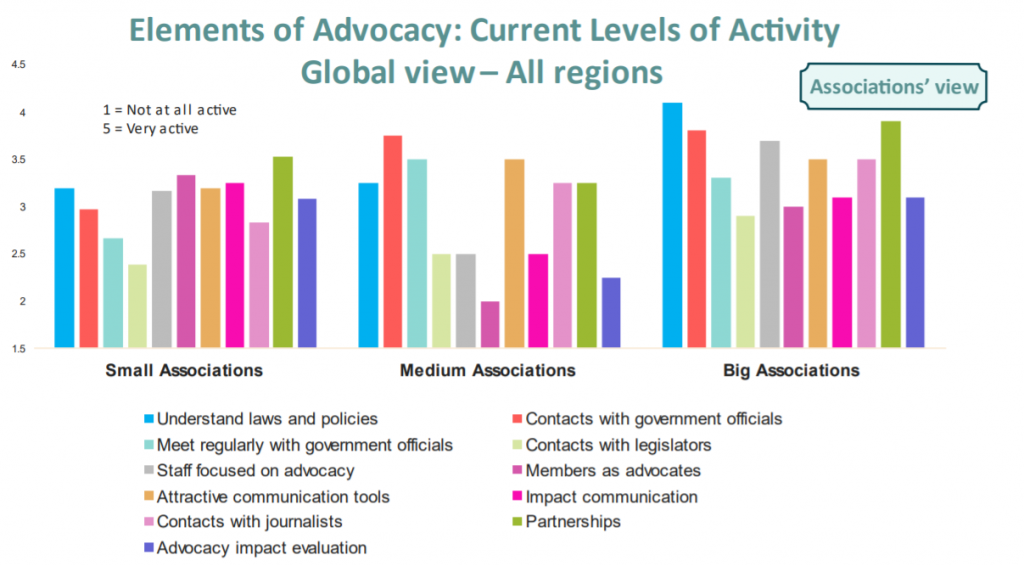
Chart 3: Level of activity on different elements of advocacy – association respondents only (by size of association)
There is also a distinction between larger and smaller associations, with larger players more likely to be involved in engaging with law and lawmakers. This may be explained by the fact that this sort of engagement does require time and resources which may be less readily available for smaller players.
This raises an interesting challenge – what can be done to strengthen the ability of smaller associations to carry out these aspects of advocacy?
A varying focus between dedicated advocacy capacity and mobilising the field: as highlighted above, it is important both to have named individuals who can lead and coordinate advocacy work, and to enable librarians everywhere to speak up in favour of our profession and institutions.
In almost all regions of the world, there is a stronger emphasis on helping individual librarians to act, than on building a central capacity for advocacy, with only North America focusing more on the latter (see chart 1 above).
Nonetheless, the gap is not a wide one in Asia-Oceania, Europe, and North America. It is wider, however, in Latin America and the Caribbean, the Middle East and North Africa, and Sub-Saharan Africa, indicating a potential area of focus for capacity-building.
Looking specifically as associations, the picture is different. In Asia-Oceania, Europe, Latin America and the Caribbean, and North America, there is a slightly stronger focus on dedicated advocacy capacity, while in the Middle East and North Africa and Sub-Saharan Africa, a lot more effort goes into mobilising members.
Turning in particular to associations of different sizes (see chart 3), the data indicates that larger players may be more focused on dedicated advocacy capacity, while smaller ones emphasise mobilising their memberships more.
In the end, the goal must be to ensure a similar focus on these two elements, and so learning how to develop both types of capacity, in order to support advocacy that is as strong as it is coordinated.
Partnerships complement libraries’ own efforts: as highlighted above, forming partnerships can be a powerful way of supporting library advocacy by recruiting a wider range of voices, able to reach out to a wider audience.
In general, the importance of building such partnerships appears already to be well recognised . Looking across all respondents, by region (see chart 3), in Asia-Oceania and North America, it appears to be the element of advocacy where there is most activity. In every other region, it is in the top three or four elements of advocacy.
The same does not go for contacts with journalists – it is only in the Middle East and North Africa, and in Europe, where there is the same level of activity in working with them as in partnerships in general. In Latin America and the Caribbean, and in North America, there is a significant gap.
Looking only at associations, the picture is similar – there is more activity around forming partnerships than working with journalists, with the exception of the Middle East and North Africa where the scores are equal (see chart 2).
Turning to associations of different sizes, it is notable that while the focus on partnerships is relatively similar, it tends to be bigger associations who work more work with journalists (see chart 3).
Overall, there is a welcome strong focus on partnerships across the board, but evidence that there may be some benefit in helping smaller associations develop their ability to engage with the media.
Communications plays a key role in respondents’ advocacy, but with varying responses for content and design: around the world, the importance of being able to communicate evidence of the value of the work of libraires, in an effective way, seems to be well recognised when looking at all respondents. Indeed, in Latin America and the Caribbean, the Middle East and North Africa and Sub-Saharan Africa, both of these are in the top three in terms of level of activity (see chart 1).
Looking only at associations, these two elements stand out less strongly, although the Middle Eastern and North African and Sub-Saharan African associations still focus strongly on these compared to associations from other regions (see chart 2).
As for associations of different sizes, smaller associations tend to focus more strongly on content, while larger ones indicate that they focus more on the presentation of materials – something that may be associated with the fact that they have more resources available for design work (see chart 3).
Looking across these results, it may be possible to conclude that when faced with more limited resources, many may decide to focus on communications which can be sent to a variety of stakeholders, rather than concentrating on individual decision-makers. Certainly, this work can play a useful role in trying to shape broader public opinion, and indeed there may be useful lessons to share about how to do communications on a small budget.
Evaluation underrelated?: a final point to note is the relatively low level of investment of energy in the evaluation of advocacy efforts. Indeed, looking at all respondents, this comes last in Europe, the Middle East and North Africa, and North Africa, and near-last in Sub-Saharan Africa (see chart 1).
Looking at the data only for associations, impact scores slightly higher among smaller associations than larger ones (potentially because of greater pressure on advocacy resources) (see chart 2). Moreover, associations in Asia-Oceania and Latin America and the Caribbean are also readier to engage, it seems, than those elsewhere.
Overall, it appears that advocacy evaluation may well be an area where there are lessons to share and to learn from.



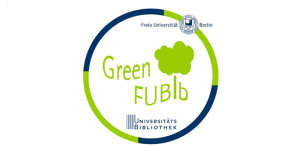
 From 20 to 22 October 2021, the twentieth Seminar of Environmental Documentation Centers and Protected Natural Areas was held. This year it has been coordinated by the National Center for Environmental Education (CENEAM) of the Ministry for the Ecological Transition and the Demographic Challenge and the Center for Documentation and Resources for Environmental Education of Cantabria (CIMA).
From 20 to 22 October 2021, the twentieth Seminar of Environmental Documentation Centers and Protected Natural Areas was held. This year it has been coordinated by the National Center for Environmental Education (CENEAM) of the Ministry for the Ecological Transition and the Demographic Challenge and the Center for Documentation and Resources for Environmental Education of Cantabria (CIMA).